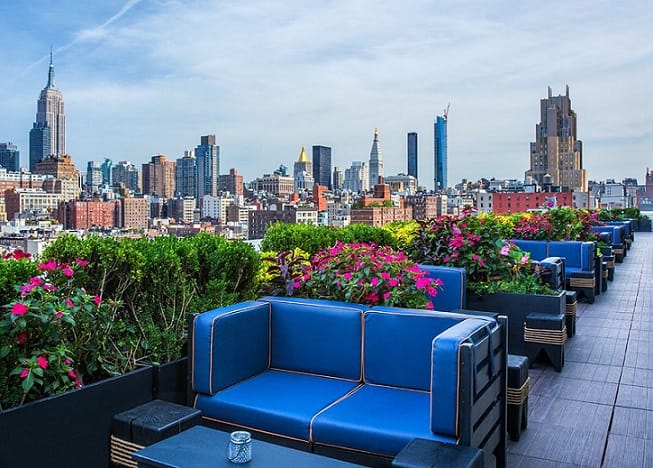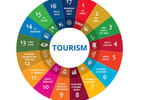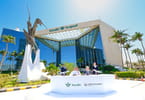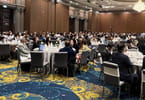Daily housekeeping in hotels and traditional concierges may be history, as hotels will increasingly use technology to limit touchpoints and reduce contact between staff and guests.
Hoteliers are also adapting business models to offer work spaces and hybrid options to suit the new normal.
Speaking at WTM Virtual about the outlook for accommodation, industry experts said repetitive processes such as check-in can easily be automated in the current COVID climate – but guests may still want face-to-face service in some cases.
Moritz von Petersdorff, Managing Director of Suitepad, said his company’s tablets replaced items in hotel rooms such as paper directories and TV remote controls, to give clients confidence about hygiene.
Guests can opt out of visits from the cleaner and choose room service instead of a restaurant.
Some hotels have partnered with nearby restaurants to offer room service, as it is hard for hoteliers to make a profit on food when occupancy rates are low.
Reducing visits from housekeeping staff is also cheaper and more sustainable.
Michael Struck, Founder of Ruby Hotels, said the automation process had already been under way at his hotels over recent years, giving front-of-house staff freedom to interact with guests without having to worry about admin.
The ‘lean luxury’ chain is also offering work spaces which encourage more business guests, as the corporate sector has been affected more severely than leisure.
Wyndham Hotels and Resorts has introduced a booking app which automates the check-in process – and reduces reliance on online travel agents.
Eva Chan, EMEA Head of Feasibility and Viability at Wyndham, said her company’s hotels are still seeing some business travellers – workers in sectors such as logistics, manufacturing, railways and construction.
Wyndham is also developing ‘hybrid’ meetings, which offer facilities for colleagues to meet in person and have virtual meetings with counterparts in other countries.
Joe Stather, Associate Director at CBRE Group, shared statistics from the past 70 years which showed how demand for travel always bounces back after a crisis.
He said: “Tourists will remain closer to home, so domestic and short-haul destinations will recover relatively quickly but not enough to support hotel performance in many markets.”
Major cities relying on international travel and MICE (meetings, incentives, conferences and events) business, such as London, Paris, Barcelona and Rome are particularly badly hit – while regional centres such as Brighton, York and Hamburg are seeing some benefits from the staycation trend.
“The prospect of further lockdowns makes planning difficult but you can be buoyed by how quickly demand did bounce back in the summer,” he told the panel.
WHAT TO TAKE AWAY FROM THIS ARTICLE:
- Some hotels have partnered with nearby restaurants to offer room service, as it is hard for hoteliers to make a profit on food when occupancy rates are low.
- Major cities relying on international travel and MICE (meetings, incentives, conferences and events) business, such as London, Paris, Barcelona and Rome are particularly badly hit – while regional centres such as Brighton, York and Hamburg are seeing some benefits from the staycation trend.
- Speaking at WTM Virtual about the outlook for accommodation, industry experts said repetitive processes such as check-in can easily be automated in the current COVID climate – but guests may still want face-to-face service in some cases.






















